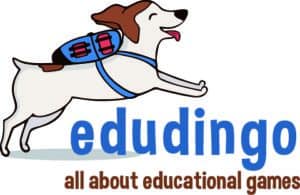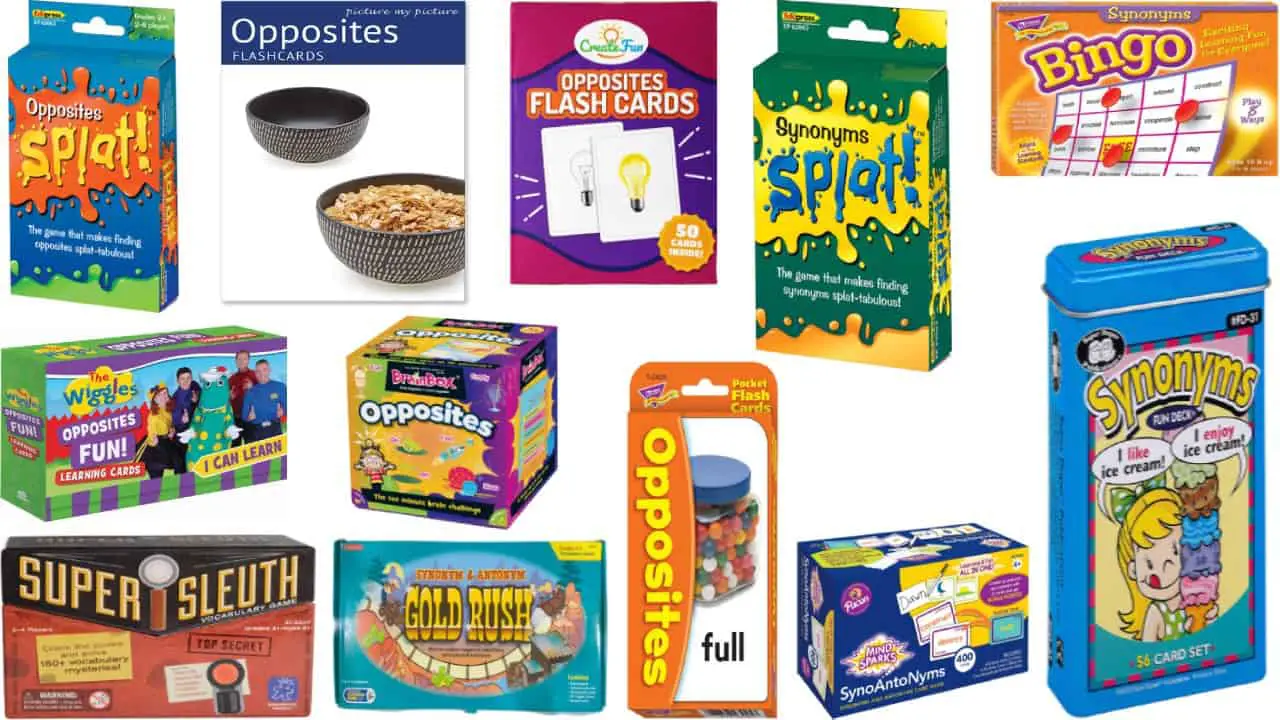This post contains affiliate links.
Learning about synonyms and antonyms is a great way to widen your child’s vocabulary
In this post, you’ll find 12 card games that teach antonyms and synonyms to your elementary students. One board game, “Synonyms & Antonyms Gold Rush,” teaches both of these concepts. Most of these games are matching games that challenge their memory and observational skills.
Synonyms and Antonyms Board and Card Games Comparison Table
| Game | Age | Players | Rating |
|---|---|---|---|
| Synonyms | 7+ | 1+ | ★★★★☆ |
| Synonyms Splat | 7+ | 2‑6 | ★★★★★ |
| Synonyms Bingo | 10+ | 3‑36 | ★★★☆☆ |
| Opposites (Create Fun) | 3+ | 1+ | ★★★☆☆ |
| Opposites Fun! | 3+ | 1+ | ★★☆☆☆ |
| Opposites Splat | 7+ | 2‑6 | ★★★★★ |
| Opposites (Trend Enterprises) | 5+ | 1+ | ★★★★☆ |
| Opposites (Brainbox) | 5+ | 1+ | ★★★☆☆ |
| Opposites (Picture My Picture) | 3+ | 1+ | ★★★☆☆ |
| Adjectives & Opposites | 5+ | 1+ | ★★★★☆ |
| Synonyms & Antonyms Gold Rush | 9+ | 2‑4 | ★★★★☆ |
| Super Sleuth | 8+ | 2‑4 | ★★★☆☆ |
| SynoAntoNyms | 10+ | 2-10 | ★★★★☆ |
Synonyms Card Games
Synonyms (Super Duper Publications)
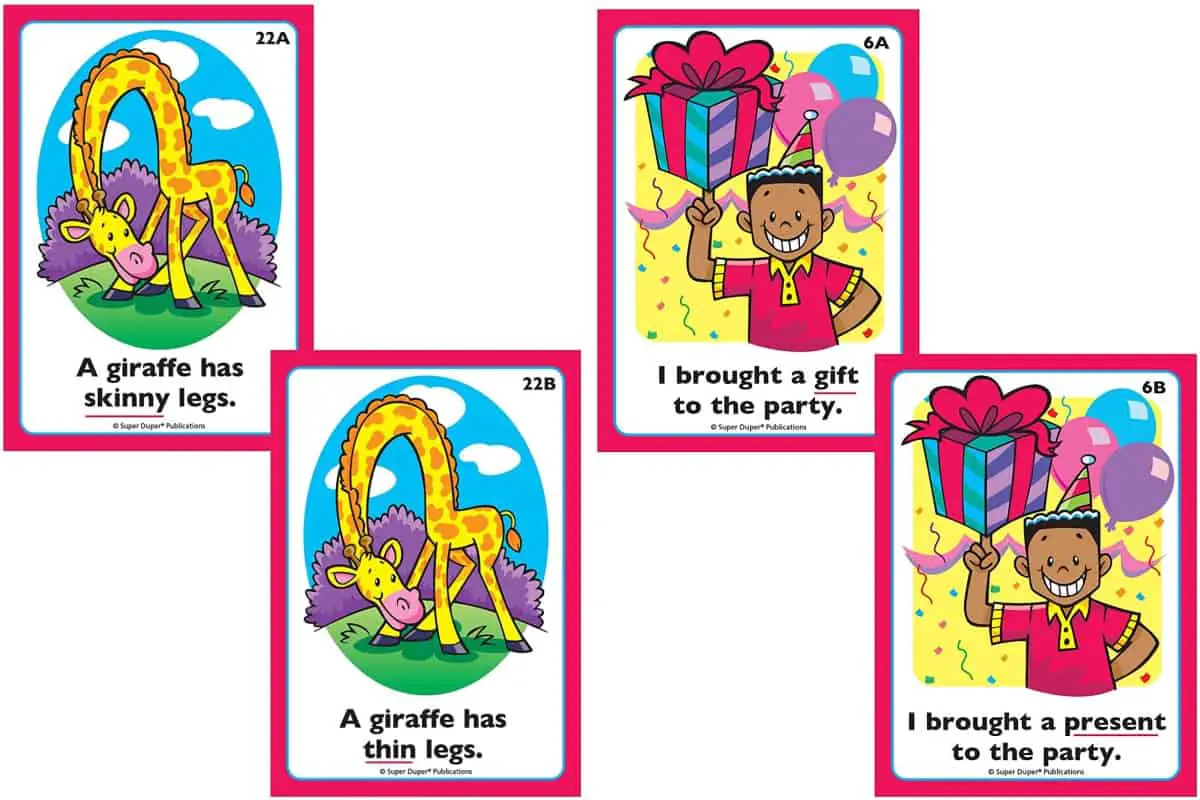
★★★★☆
For Families and Schools | Age 7+ | 2-5 players | Duration 15-20 min
Synonyms features a deck of 52 illustrated cards with synonyms used in sentences. This deck comprises 26 synonym pairs that you can use to play Go Fish, Memory, and Match-Up. The set also comes with other game ideas:
features a deck of 52 illustrated cards with synonyms used in sentences. This deck comprises 26 synonym pairs that you can use to play Go Fish, Memory, and Match-Up. The set also comes with other game ideas:
- Same-O – first, the player draws a card and reads the sentence aloud. Then, the next player must say the same sentence but change the underlined word with a synonym.
- Synorama – player draws a card and reads the sentence aloud. Then, they have to think of as many synonyms as they can for the underlined word. They score a point for each correct word that they give.
- Synonym Circle – players sit in a circle with the deck of cards in the middle. Then the first player picks a card and reads the sentence aloud. After, the players on their left have to repeat the same sentence but replace the underlined word with a synonym. Each one gets the point if they give a correct word.
I like this set because it can be used to play several games. So, even if there are only 26 pairs, it doesn’t get boring to play even after several uses. Players can also easily self-correct when using the cards for memory or matching games because the illustration is similar for synonymous pairs. The deck also features decodable and simple sentences, perfect for emergent readers.
Synonyms Splat (Edupress)
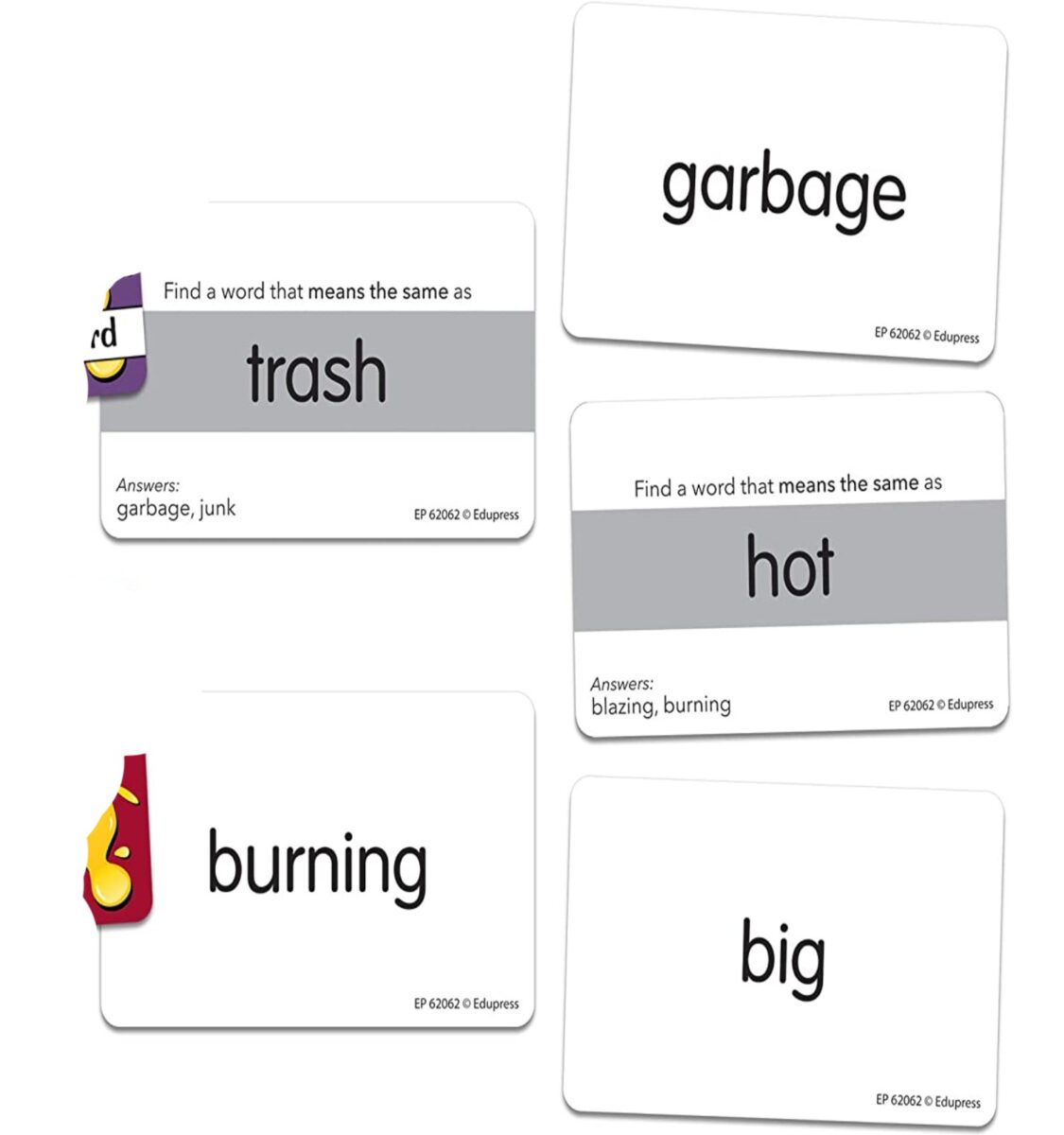
★★★★★
For Families and Schools | Age 7+ | 2-6 players | Duration 10-20 min
Synonyms Splat is a fast-paced matching card game that you can play at home or school. It comes with 75 calling cards and 150 answer cards.
is a fast-paced matching card game that you can play at home or school. It comes with 75 calling cards and 150 answer cards.
To play this game:
- deal the cards and have the players put them face up in front of them
- the dealer draws a calling card and reads the instruction
- all the players check their card for a match and yell splat if there is one
- if the card matches the calling card, the player will flip their card
- the first player to turn all their cards wins
I like this game because it is great to play even if you only have a short free time in your classroom. It also challenges your students to think fast when making matches. They also develop their listening skills because following instructions is part of the play. Lastly, there are a lot of cards, so it has high replayability.
Synonyms Bingo (Trend Enterprises)
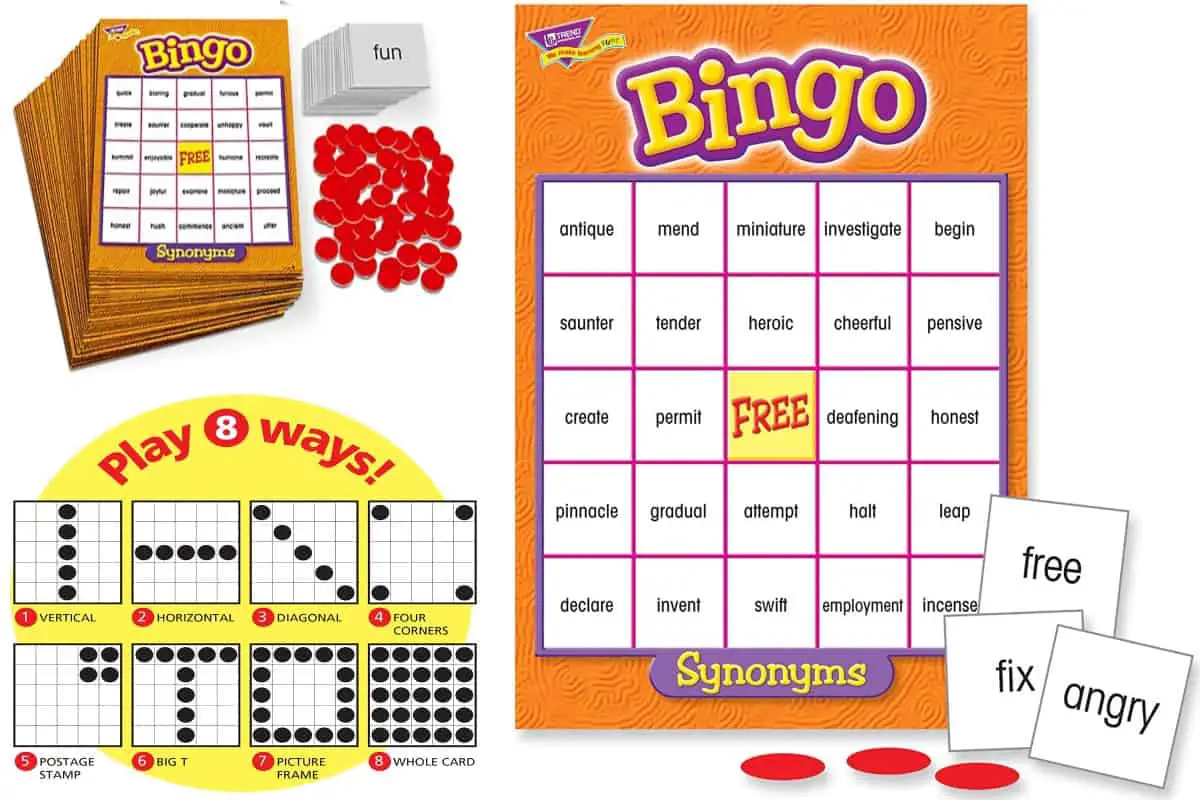
★★★☆☆
For Families and Schools | Age 10+ | 3-36 players | Duration 10-20 min
Synonyms Bingo is a bingo-inspired game that teaches your child 37 new vocabulary words. This set comes with 36 playing cards, cardboard chips, calling cards, and mats. I recommend this game because it is easy to play and can be used in classrooms. There are also a lot of words to learn, so it is excellent for widening their vocabulary.
is a bingo-inspired game that teaches your child 37 new vocabulary words. This set comes with 36 playing cards, cardboard chips, calling cards, and mats. I recommend this game because it is easy to play and can be used in classrooms. There are also a lot of words to learn, so it is excellent for widening their vocabulary.
However, some of the words may not be familiar to all students. So, it is advisable to list definitions and sentences with context clues when playing with them. Or you can introduce these challenging words in class before playing with the game, so your children will already understand them before playing. The cardboard chips are also not durable, so you may need to buy plastic chips if playing with groups of people.
Antonyms Card Games
Opposites (Create Fun)
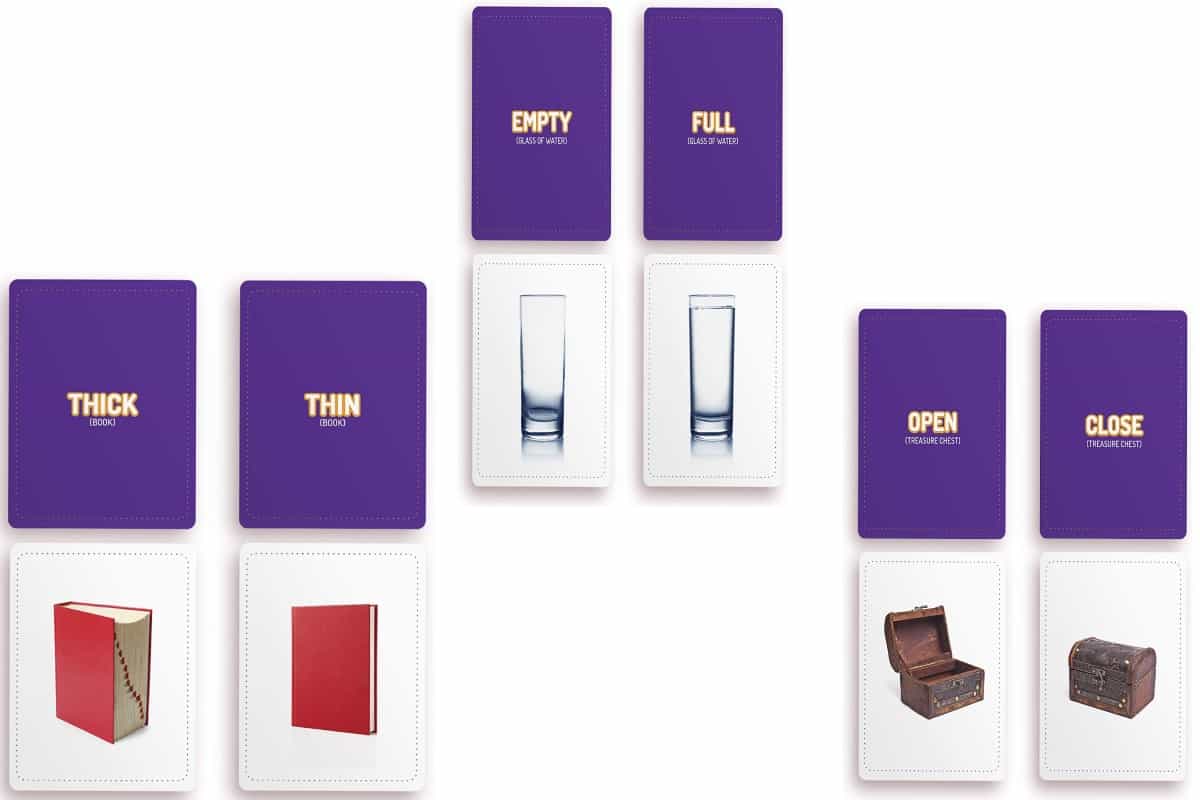
★★★☆☆
For Families | Age 3+ | 1+ players | Duration 10-20 min
Opposites is a flashcard set for teaching antonyms. One side has the illustration, while the other has the label – an adjective or verb describing the object – and the object’s name.
is a flashcard set for teaching antonyms. One side has the illustration, while the other has the label – an adjective or verb describing the object – and the object’s name.
I like this set because:
- you can use it to teach children as young as 3 about the concept of opposites
- you can use it to play matching and memory games
- it features a minimalist design and easy to read typeface
- it uses both verbs and adjectives as examples of opposites
However, I give this set 3 stars only because it only has 25 pairs. So it has low replayability.
Opposites Fun! (The WIggles)
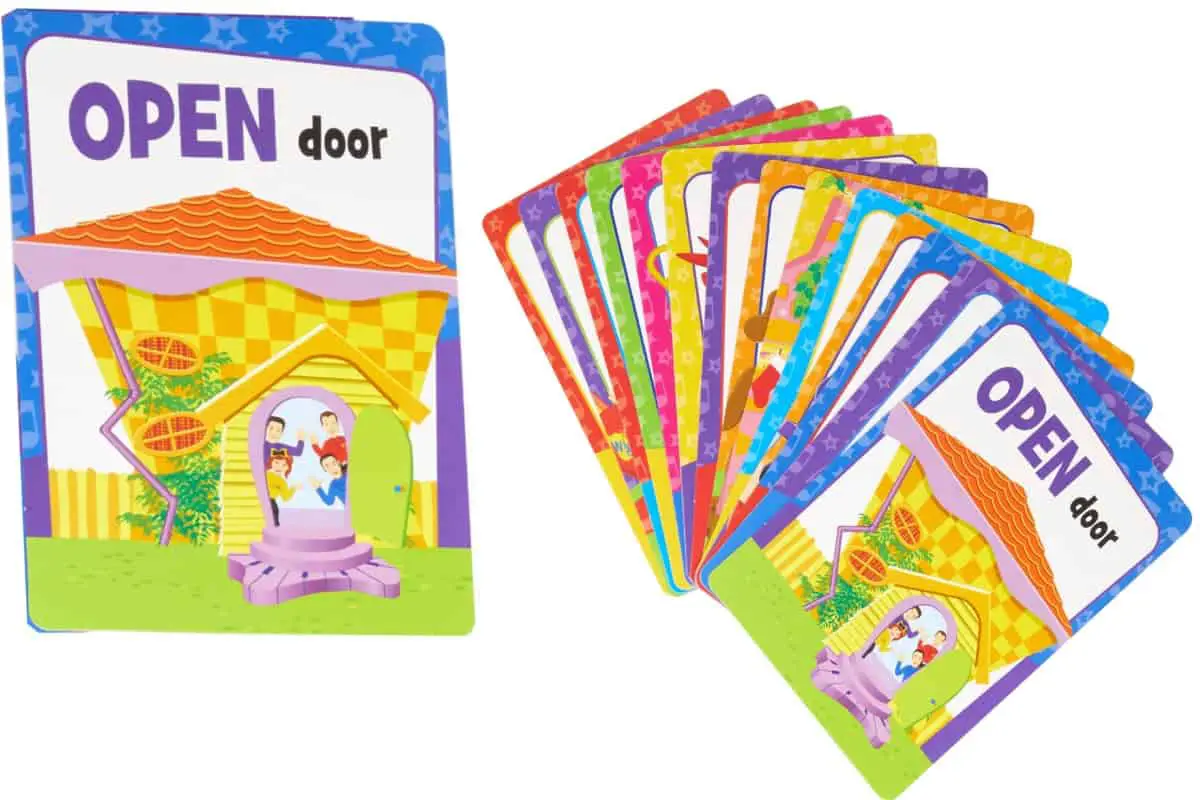
★★☆☆☆
For Families | Age 3+ | 1+ players | Duration 10-20 min
Opposites Fun! is a set of 14 learning cards that you can use to teach antonyms to your preschoolers to kindergarteners. Each card features an illustration and a short phrase or word to describe the picture.
is a set of 14 learning cards that you can use to teach antonyms to your preschoolers to kindergarteners. Each card features an illustration and a short phrase or word to describe the picture.
I like this set because it is easy to use when playing matching games with toddlers. There are only seven pairs, so it is just the right number to hold your young child’s attention. The cards are also big enough for your child’s tiny hands. They also feature common words that your child encounters in their daily lives.
But I give this only two stars because it is a bit expensive for that number of cards.
Opposites Splat! (Edupress)
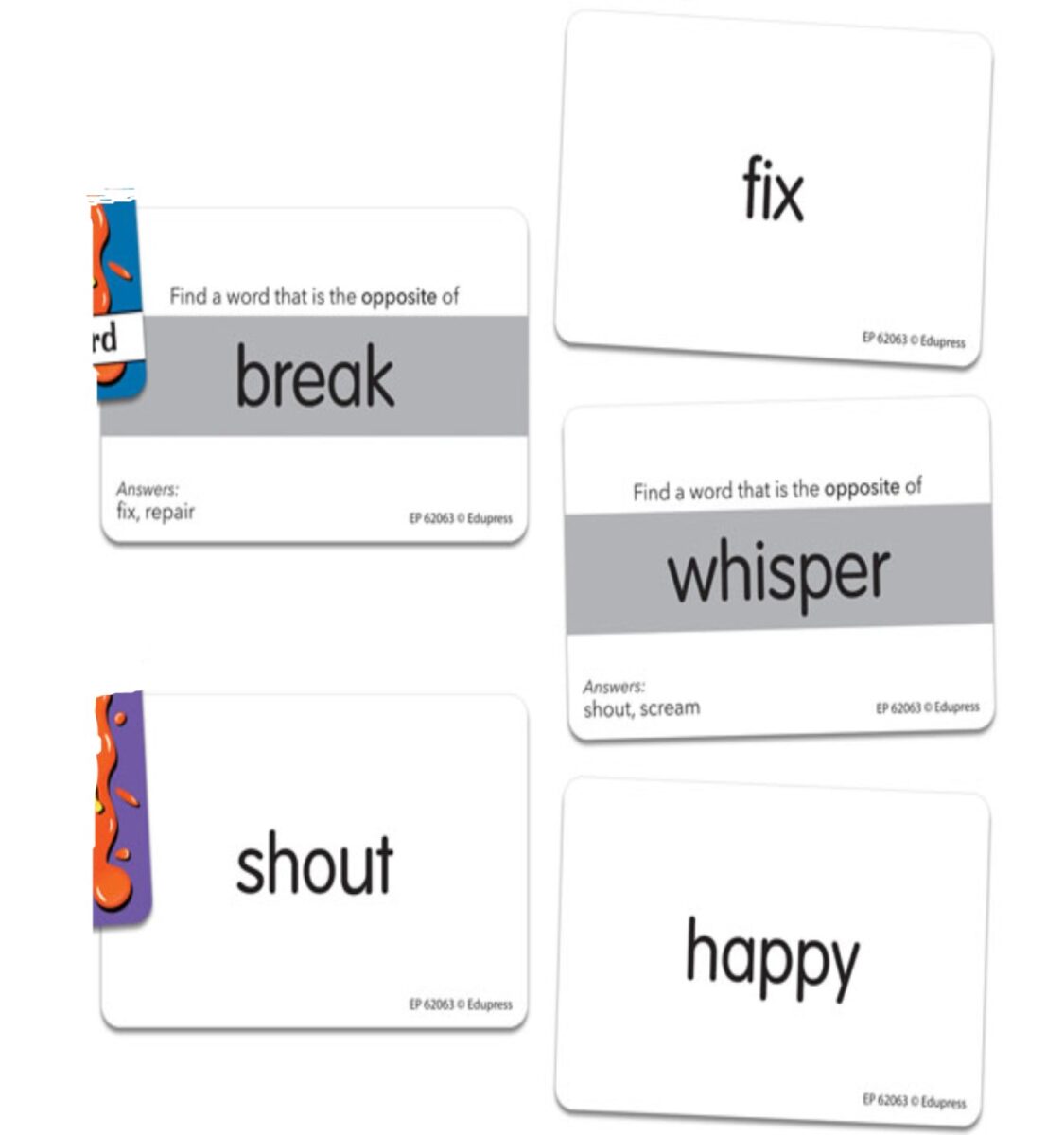
★★★★★
For Families and Schools | Age 7+ | 2-6 players | Duration 10-20 min
Another fast-paced card game to try with your students is the Opposites Splat! This antonym card game includes 75 calling cards and 150 answer cards.
This antonym card game includes 75 calling cards and 150 answer cards.
This card game is easy to play. You need to:
- deal the cards
- have all players place the cards face up in front of them
- have the dealer draw a calling card and read the instruction
- let all the players check their cards and yell splat when they have a word that matches the calling card
- flip over your card if it matches the instruction
The player to flip all their card first wins.
I highly recommend this game for its high replayability. The calling cards also show all the possible answers for instant feedback and guide when there is no adult playing.
Opposites (Trend Enterprises)
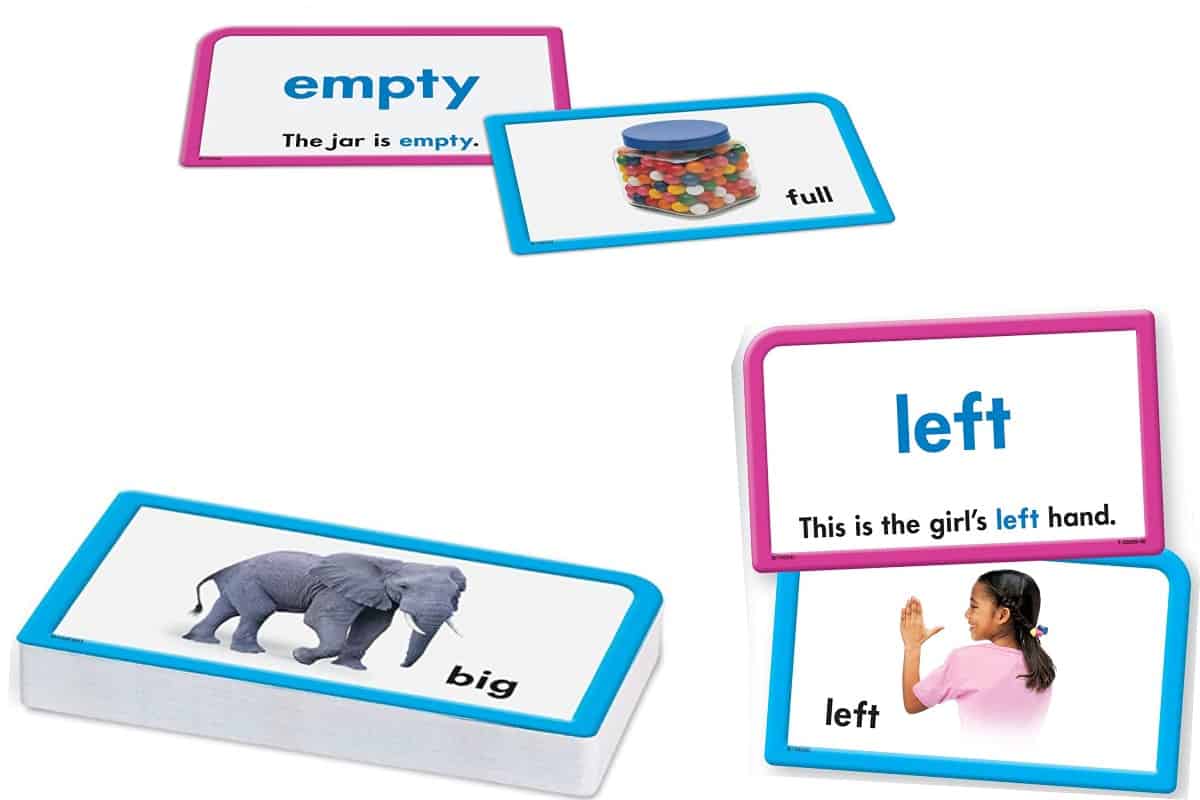
★★★★☆
For Families and Schools | Age 5+ | 1+ players | Duration 10-20 min
Opposites is a flashcard set with photos and simple sentences. It comes with 54 cards and 2 activity cards.
is a flashcard set with photos and simple sentences. It comes with 54 cards and 2 activity cards.
I like this set because:
- it has more cards at a very low price
- it uses real-life illustrations of objects and people
- it has simple sentences that beginning readers can decode
- you can use them to play matching and memory card games
You can also use this set to teach younger children about opposites. The side with illustration shows the word only and is perfect for non-readers.
However, I rate them four stars only because the cards are not so durable.
Opposites (Brainbox)
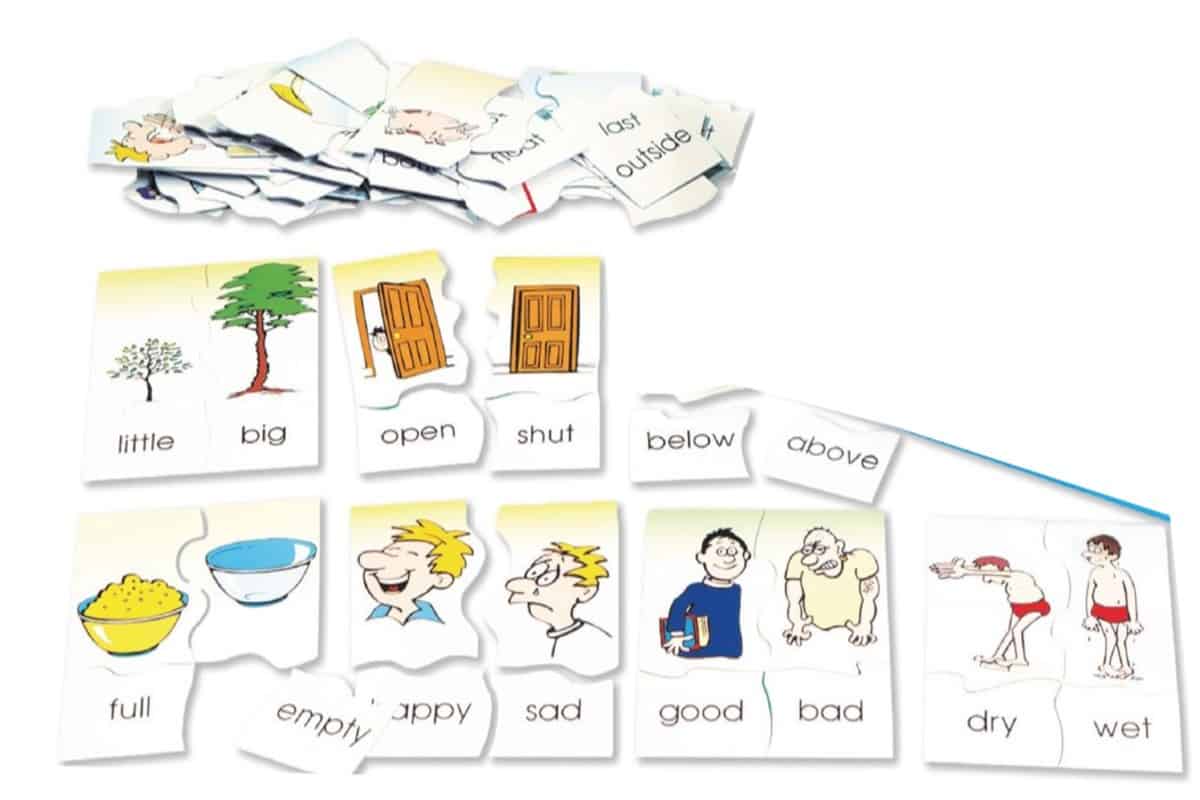
★★★☆☆
For Families and Schools | Age 5+ | 1+ players | Duration 10-20 min
Brainbox’ Opposites is a memory card game featuring opposite terms and several questions that tests your child’s attention, observation, and memory skills. This set includes 55 cards showing pictures of two opposite words. It also comes with a die and timer.
is a memory card game featuring opposite terms and several questions that tests your child’s attention, observation, and memory skills. This set includes 55 cards showing pictures of two opposite words. It also comes with a die and timer.
I like this game because it is fun and challenging to play. The rules are:
- Draw a card during your turn and stare at it for 10 seconds. You may let younger children have more time (20 seconds).
- Pass the card to the person to your left. And roll the die.
- The other person will read a question corresponding to the number you rolled to you.
- Keep the card if you have answered correctly.
The person with the most cards after 10 minutes of gameplay wins.
This game is fast-paced and great for developing your child’s observational skills. However, as an antonym card game, I don’t think it offers much unless you discuss each card during play.
Opposites (Picture My Picture)
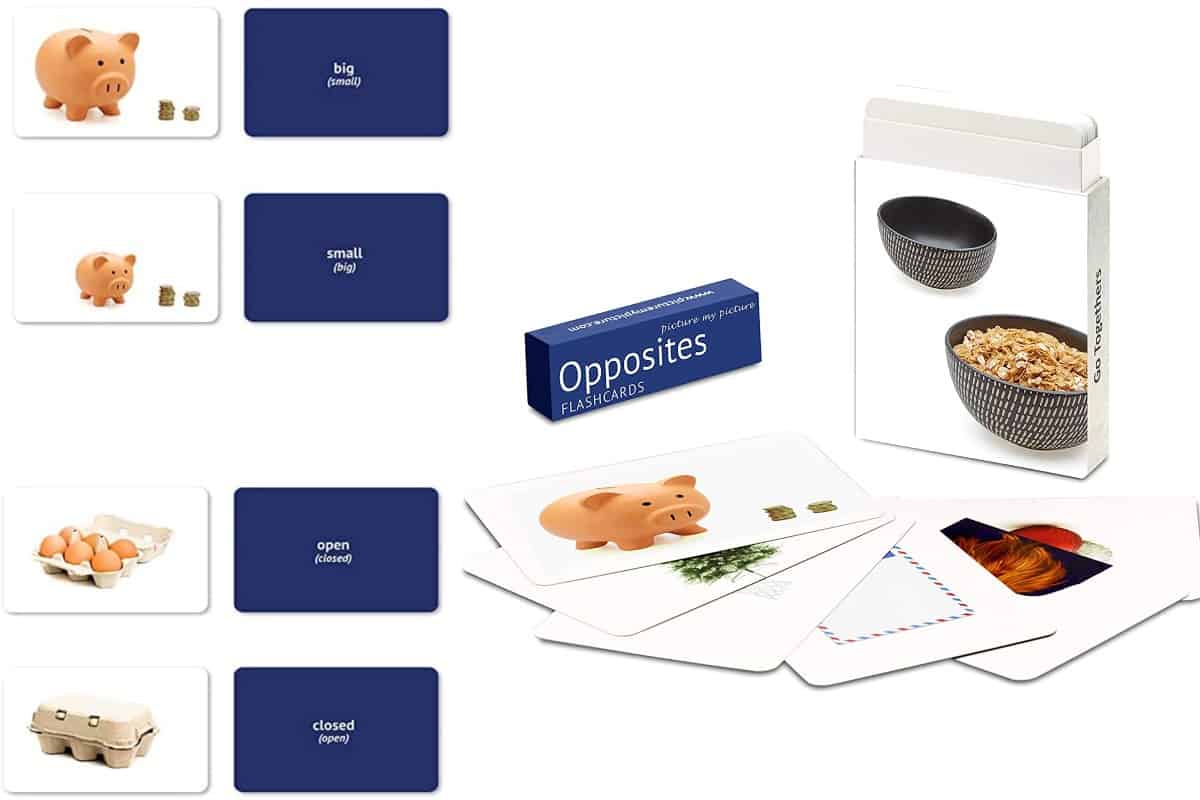
★★★☆☆
For Families | Age 3+ | 1+ players | Duration 10-20 min
Opposites is a flashcard set that shows pictures of opposite terms. It has an illustration on one side and the antonym pairs on the other. There are 40 cards in this set, but only 10 word pairs as there are two copies for each pair.
is a flashcard set that shows pictures of opposite terms. It has an illustration on one side and the antonym pairs on the other. There are 40 cards in this set, but only 10 word pairs as there are two copies for each pair.
The words in this set are:
- empty/full
- front/back
- dirty/clean
- many/few
- big/small
- on/off
- long/short
- high/low
- wet/dry
- open/closed
I like that this set features real-life photos of these word pairs. It is also helpful to have two copies of each pair for classroom use. However, there are too few words included in the set. Some of the illustrations are also hard to understand at first glance.
Adjectives & Opposites (Eli)
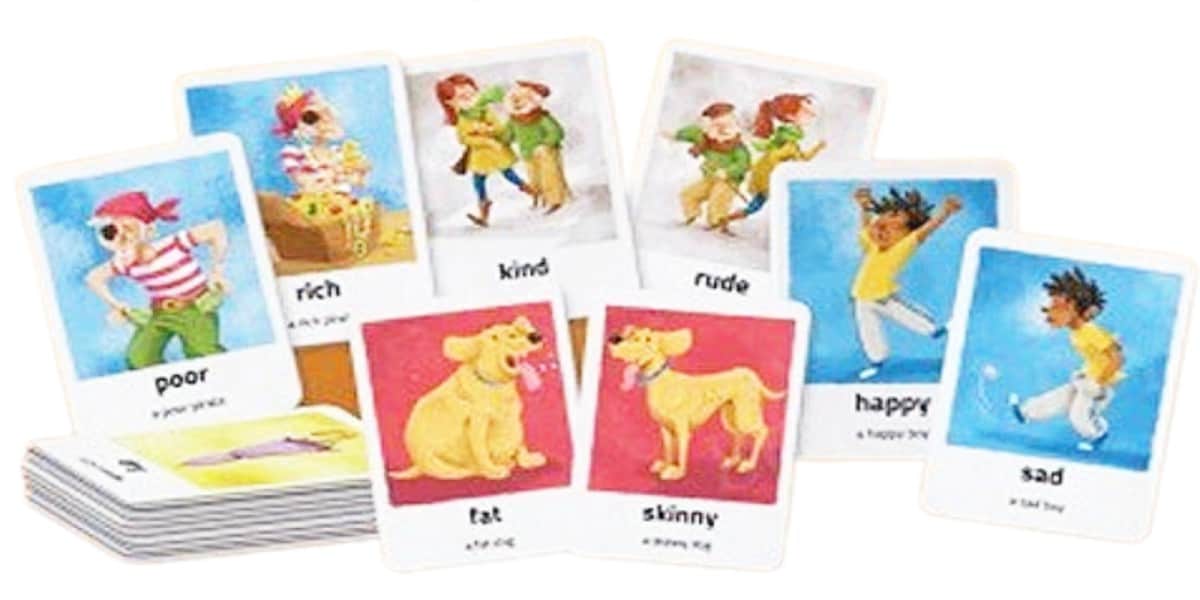
★★★★☆
For Families and Schools | Age 5+ | 1+ players | Duration 10-20 min
Adjectives & Opposites is a matching card game with 130 cards (65 pairs). Each card has an illustration and label.
is a matching card game with 130 cards (65 pairs). Each card has an illustration and label.
I recommend this set because:
- it features commonly use adjectives that help widen your young readers’ vocabulary
- it is a simple matching card game, so it is easy to play
- the illustrations are easy to understand
- the cards also include a short phrase that your beginning reader can decode
- there are 65 pairs, so this has excellent replayability
Like all the card games in this post, you can also use this set to challenge your child to think of more words to match the cards. You can also let them use both opposite terms in a sentence to build their sentence-making skills and widen their vocabulary.
Synonyms and Antonyms Board and Card Games
Synonyms & Antonyms Gold Rush (Lakeshore Learning)
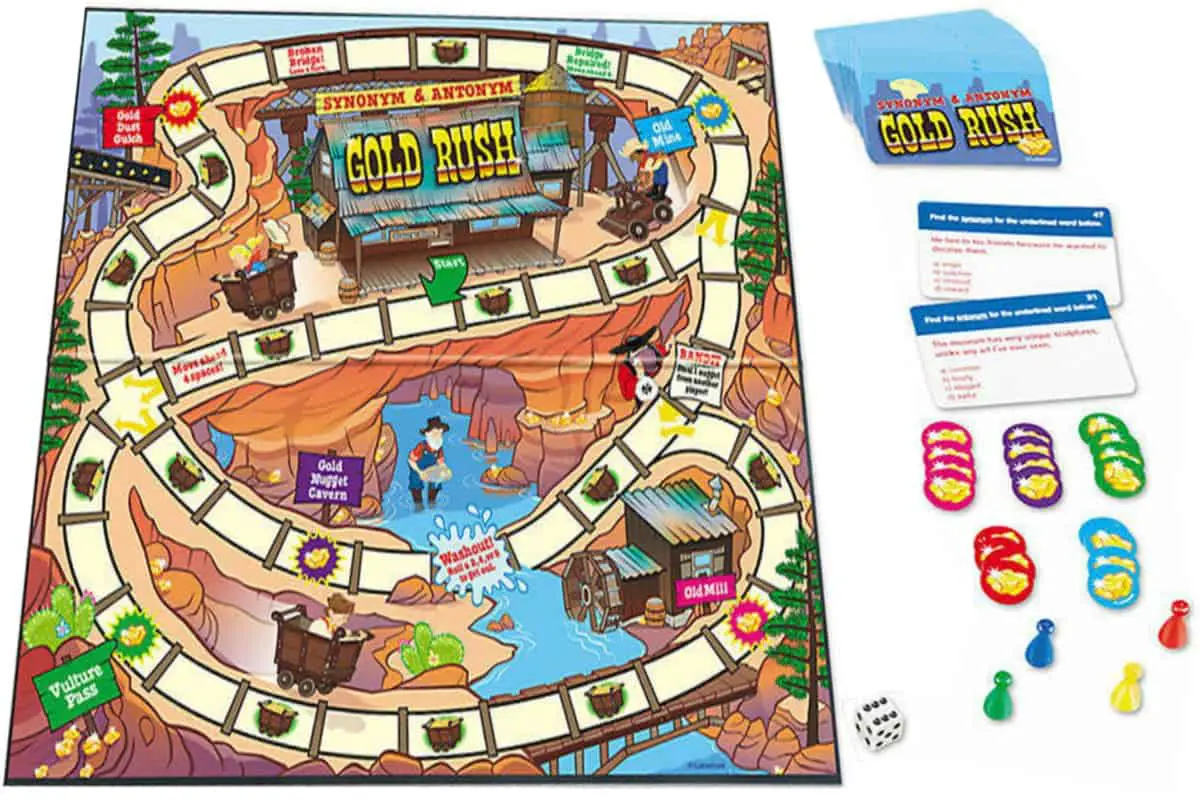
★★★★☆
For Families | Age 9+ | 2-4 players | Duration 10-20 min
Let your child mine gold nuggets and learn about antonyms and synonyms with Lakeshore Learning’s Synonyms & Antonyms Gold Rush . This board game comes with 50 question cards, 20 gold nuggets, 4 pawns, and a die. It also has an answer card that you can refer to during play.
. This board game comes with 50 question cards, 20 gold nuggets, 4 pawns, and a die. It also has an answer card that you can refer to during play.
I recommend this game for reviewing synonyms and antonyms because it is easy to play. Players only take turns rolling the die and moving around the board while answering questions and collecting gold. Then, the player who gets five gold nuggets first wins.
I think this game also enhances your child’s vocabulary and reading skills. But I hope there are more question cards in the game for replayability.
Super Sleuth (Educational Insights)
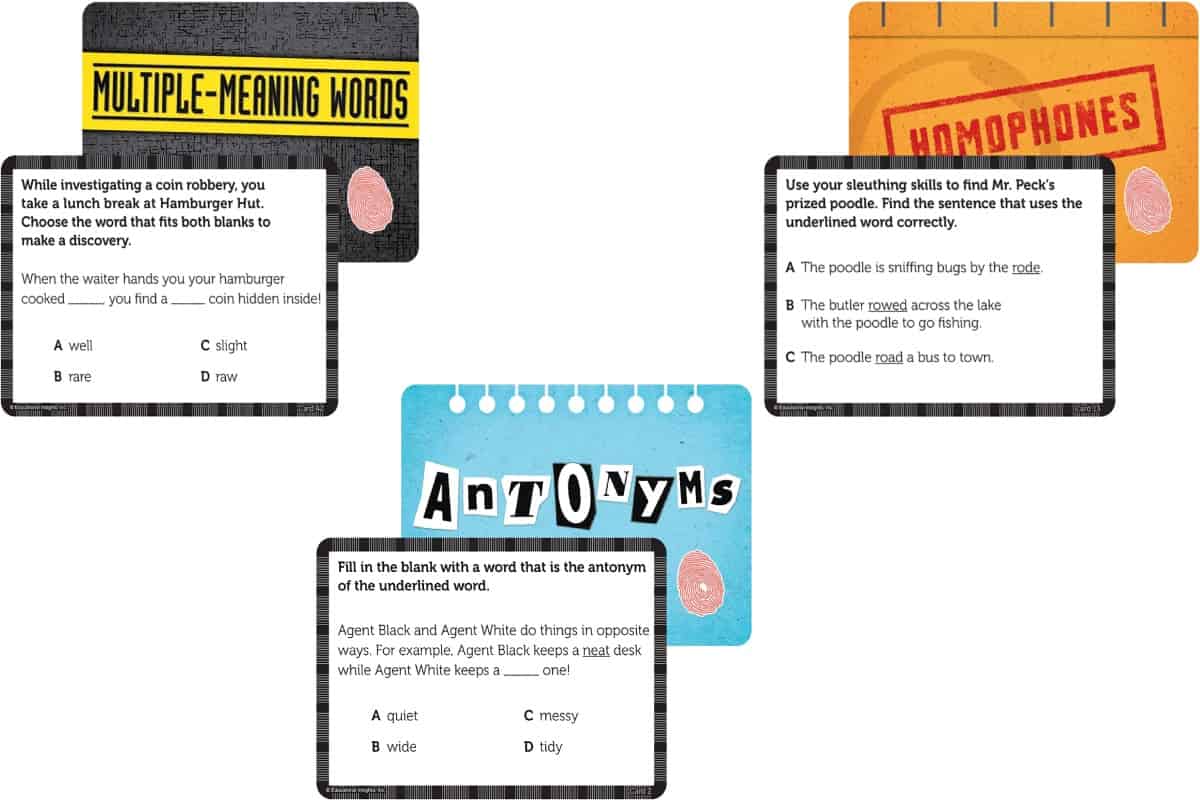
★★★☆☆
For Families and Schools | Age 8+ | 2-4 players | Duration 10-20 min
In Super Sleuth , your child plays as a detective as they develop their vocabulary skills. This card game focuses on four categories:
, your child plays as a detective as they develop their vocabulary skills. This card game focuses on four categories:
- Synonyms
- Antonyms
- Homophones
- Multiple-meaning words
The goal is to solve the mystery cards and earn all the badges for the four categories. The mysteries are multiple-choice type questions. And there are 48 questions for each vocabulary category.
I recommend this card game for introducing these four different vocabulary skills because the words included in the set are often very easy to understand. This means students will be less frustrated as they acquaint themselves with the new vocabulary concepts. I also like this set because:
- It is easy to play
- It familiarizes children with the standardized-test format
- It offers novelty in checking the answers as you need a magnifying glass to see them
I only rate this set three stars because some words are simply too easy, even for third graders. There are also 48 cards in each category, so it has low replayability.
SynoAntoNyms (Mind Sparks)
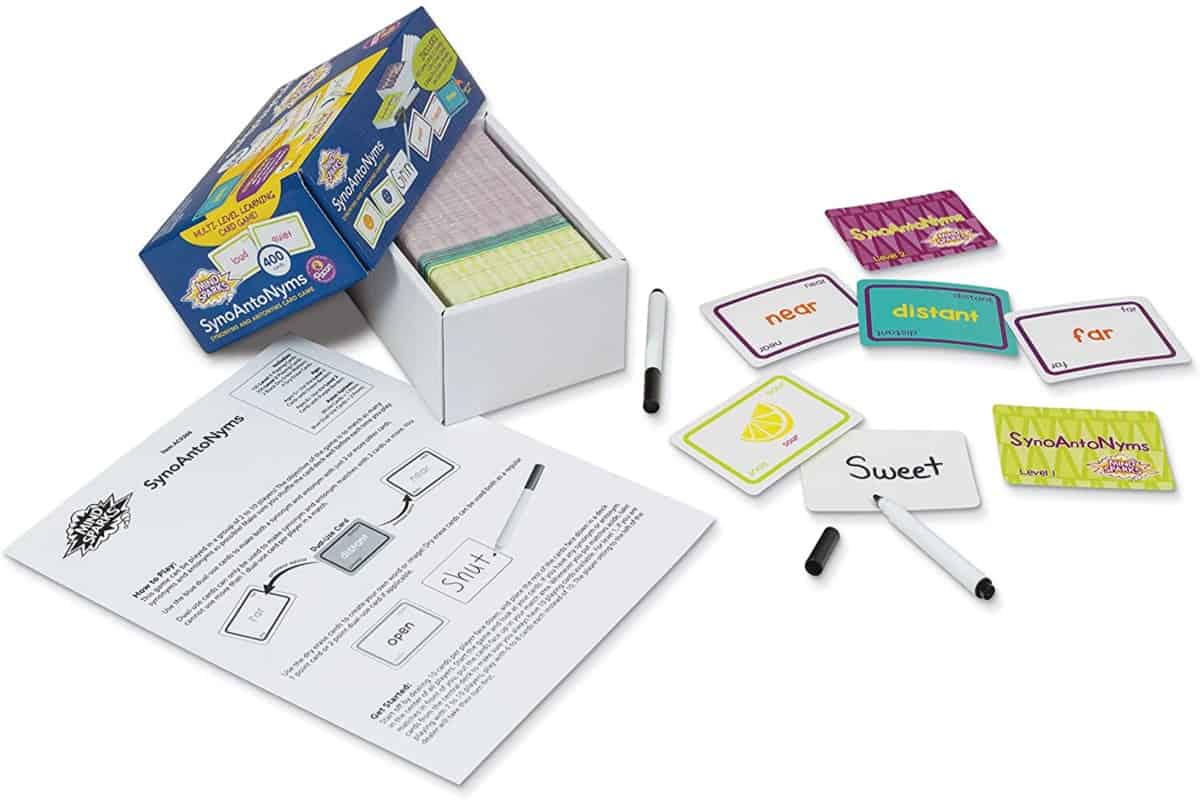
★★★★☆
For Families and Schools | Age 10+ | 2-10 players | Duration 10-30 min
SynoAntoNyms is a fast-paced matching card game for teaching synonyms and antonyms. The goal is to make matches to earn points.
is a fast-paced matching card game for teaching synonyms and antonyms. The goal is to make matches to earn points.
I like this game because:
- It has two levels for struggling and more advanced students – one level has pictures, while the other words only
- It has 400 cards in total to play with, which is excellent for replayability
- It comes with dry-erase cards, so your child can also opt to write their synonyms and antonyms too
However, this game can be challenging to play when you’re just starting because there are different rules for the Level 1 and Level 2 cards.
Other Vocabulary Board and Card Games for Elementary
As your child grows from toddler to school age, they encounter more challenging words that they need to read and understand. So it is essential that they learn new terms and concepts every day. And you can help them widen their vocabulary, not just with books, but with games too!
If you want to incorporate more games for your vocabulary lessons, check out these other posts:
- 14 Vocabulary Flashcards for Simple Vocabulary and Test Preparation

- 12 Vocabulary Board Games for Schools and Families

- 14 Vocabulary Card Games from Pre-Kindergarten to Elementary

Edudingo.com is a participant in the Amazon Services LLC Associates Program, an affiliate advertising program designed to provide a means for sites to earn advertising fees by advertising and linking to Amazon.com. We also participate in other affiliate programs which compensate us for referring traffic.
